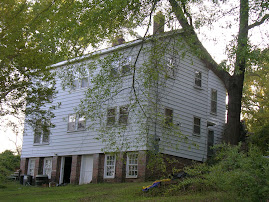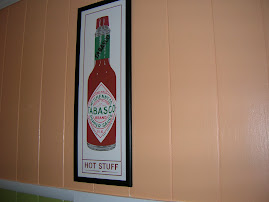Tragedy is common in New Orleans. Murders, hurricanes, poverty, indictments, you name it, we've got it. But the most recent tragedy, the oil spill in the gulf, is in a class of its own.
You would think a city that got pummeled by a hurricane and nearly destroyed by levee failures would be immune to worrying about an oil spill. We nearly drowned in Katrina, but we didn't. We survived, and will continue to do so. So what's a little oil in the gulf?
To southeast Louisiana, it's big. And eventually, it will be to the rest of the country, if not the world. Like Katrina, the damage was preventable. If the U.S. Army Corps of Engineers had not had designed flaws in the levee protection system, New Orleans would not have flooded. This is no longer speculation but has been proven. Likewise, had BP paid the extra half a billion dollars for the automatic shut off for their rig, the oil flow would have shut off prior to the entire rig sinking. As it stands, oil is still continuously pumping out into the Gulf of Mexico.
And the Gulf of Mexico is by no means a Louisiana problem. The entire southern coast of the United States, as well as the east coast of Mexico, will be greatly affected by massive amounts of oil washing up on shore. This has ramifications so huge it's hard to put into words.
The people down here are standing in line to buy up seafood, as clearly, we won't be having fresh shrimp, crawfish, or other types of seafood for quite some time. But it's not just this year we have to worry about. The entire ecosystem is going to be disrupted, likely for years. Shrimp and crawfish will not be back, much less suitable for consumption, for years to come. Animals and plants that live in or near the gulf are going to be poisoned, and those that do survive will not have a suitable environment for a long time coming. Species of animal and plant life may disappear forever.
And how long will it take to rid the water of this oil, particularly when it is still flowing? Will this oil evaporate and fall down in the rain, contaminating water supplies, poisoning crops, lowering the quality of our atmosphere? Will we breathe in oil the way we breathed in mold, seeing another spike in asthma and upper respiratory diseases and illnesses like we did after Katrina?
What happens if another big storm hits, whether it's Louisiana, Texas or Florida? The gulf water will get tossed around and tidal surge can send this oily water onto even more land than it is already invading.
Not to mention the number of people in southeast Louisiana, as well as the entire coast, who make their living in the gulf. Fishing is a huge industry in coastal areas. What will happen to these people who can no longer make a living because of the oil spill?
We have had oil spills before. This one is unique in that they have still not cut off the spill. The rig has sunk, apparently too deep into the gulf to send human beings down to figure out a way to turn it off. Maybe it will run out before they get it turned off. Either way, gas prices will end up going up, and if BP is the only gas station in your neck of the woods, you'll be feeling it.
But New Orleans will keep on dancing on Bourbon Street, hosting Jazz Fest, spending every last penny on Saints season tickets. We've always been the red-headed stepchild of the United States, so whatever happens, it's just another day for us. Whether our fishermen have to survive on welfare and food stamps or our children end up in emergency rooms from breathing problems, we will endure. We always do.
Friday, April 30, 2010
Subscribe to:
Posts (Atom)







